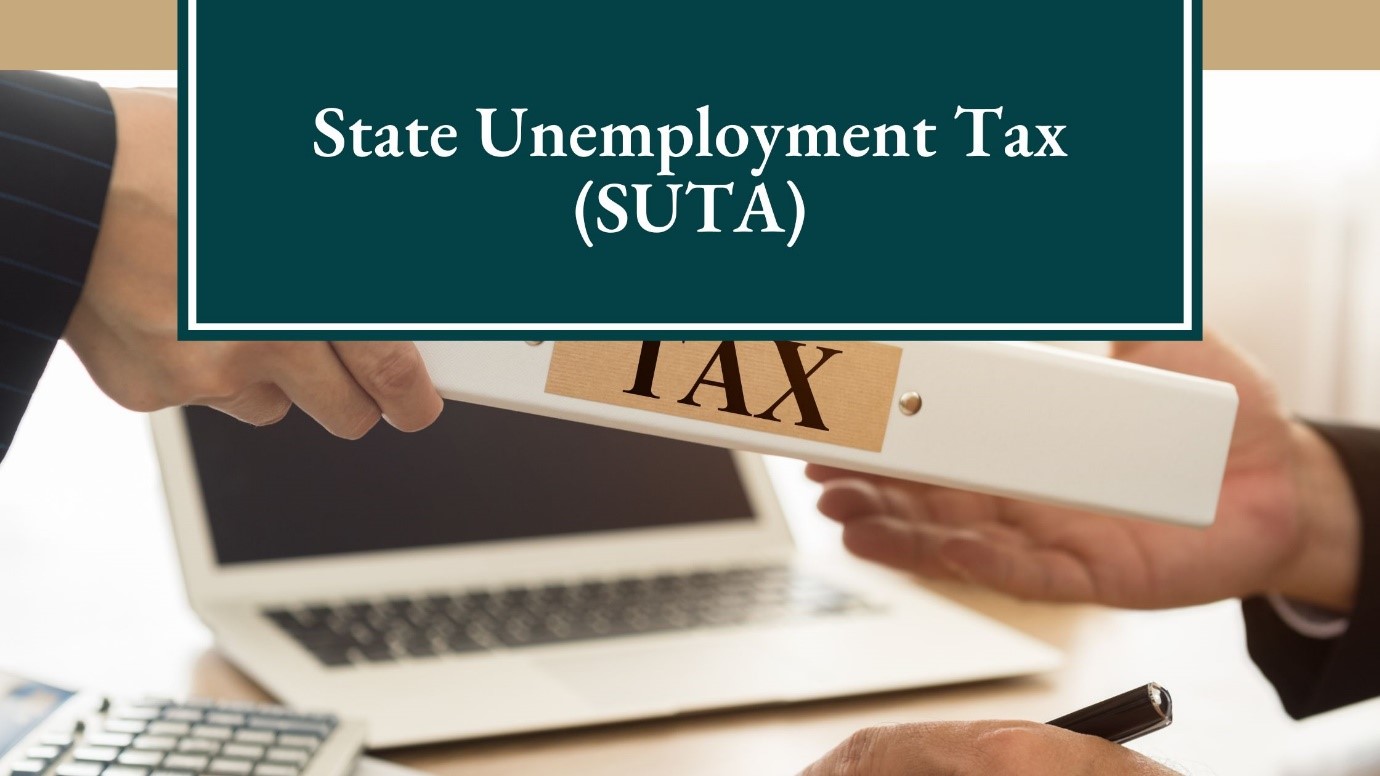Colorado Unemployment Taxes: A Deep Dive Into What You Need To Know
Hey there, friend! Let’s talk about something that might not be at the top of your fun list but is super important—Colorado unemployment taxes. Whether you’re an employer trying to navigate the complexities of tax obligations or an employee curious about how this system works, you’ve come to the right place. Colorado unemployment taxes are more than just numbers on a spreadsheet; they’re a vital part of the state’s safety net for workers who find themselves out of a job. So, grab a cup of coffee (or tea if that’s your vibe), and let’s break it down together.
Now, I know what you’re thinking: “Taxes? Really?” But hear me out. Understanding unemployment taxes can save you headaches, money, and potentially a lot of stress down the line. In Colorado, like in many other states, unemployment insurance is funded through employer contributions. This means employers play a key role in maintaining the fund that supports workers during tough times. It’s not just about paying taxes—it’s about building a stronger community.
Before we dive into the nitty-gritty, let’s set the stage. Colorado unemployment taxes are designed to provide financial assistance to eligible workers who lose their jobs through no fault of their own. The system is managed by the Colorado Department of Labor and Employment (CDLE), and it’s powered by contributions from businesses across the state. Ready to learn more? Let’s go!
- Chase Mortgage Assistance Your Ultimate Guide To Securing Financial Relief
- Kayson Myler Age Unveiling The Rising Starrsquos Journey
Understanding Colorado Unemployment Taxes
Alright, let’s start with the basics. Colorado unemployment taxes are essentially a way for employers to contribute to a fund that helps workers who become unemployed. Think of it like a safety net for those who need it most. Employers are required to pay these taxes based on their payroll, and the amount they owe depends on several factors, including their industry, past layoffs, and the overall health of the unemployment trust fund.
Who Pays Colorado Unemployment Taxes?
Here’s the deal: in Colorado, it’s primarily employers who are responsible for paying unemployment taxes. If you’re an employee, you don’t have to worry about chipping in directly. However, as an employer, you need to stay on top of your obligations. The good news is that the state provides clear guidelines to help businesses understand their responsibilities. Here’s a quick rundown:
- Employers with one or more employees are generally required to pay unemployment taxes.
- Businesses that have paid wages totaling $1,500 or more in a calendar quarter also fall under this requirement.
- Even if you’re a small business owner or a contractor, you might still need to pay unemployment taxes depending on your situation.
Confused? Don’t worry. We’ll break it down further in the next sections.
- Camilla Araujos Job On Onlyfans A Comprehensive Guide
- Alice Rosenblum Onlyfans Leak The Untold Story You Need To Know
How Are Colorado Unemployment Taxes Calculated?
This is where things get a little more technical, but don’t panic. The calculation of unemployment taxes in Colorado involves two main components: the taxable wage base and the tax rate. Let’s tackle each one:
Taxable Wage Base
The taxable wage base refers to the maximum amount of wages per employee that are subject to unemployment taxes each year. In Colorado, this number is currently set at $12,000. This means that employers only pay taxes on the first $12,000 earned by each employee annually. Anything above that is tax-free in terms of unemployment contributions.
Tax Rates
Now, here’s where it gets interesting. Each employer is assigned a specific tax rate based on their experience rating. This rating is determined by looking at factors like the number of former employees who have claimed unemployment benefits and the overall stability of the business. New employers typically start with a standard rate, which is currently around 2.8%. Over time, this rate can increase or decrease depending on the company’s history.
So, if you’re a business owner, it’s worth paying attention to your experience rating because it can significantly impact your tax bill.
Key Factors Affecting Your Tax Rate
There are several factors that can influence the unemployment tax rate your business is assigned. Let’s take a closer look:
1. Industry Type
Different industries have different levels of risk when it comes to layoffs. For example, a construction company might have a higher tax rate compared to a tech startup because construction jobs tend to be more seasonal. The state takes these industry-specific risks into account when determining tax rates.
2. Layoff History
If your business has a history of frequent layoffs, your tax rate is likely to go up. This makes sense because the state wants to encourage companies to maintain stable employment levels. On the flip side, businesses with low turnover rates may qualify for lower tax rates as a reward for their stability.
3. Economic Conditions
Let’s not forget about the broader economic picture. During periods of high unemployment, the state may adjust tax rates to ensure the unemployment trust fund remains solvent. This means businesses might see their tax rates rise during tough economic times.
What Happens When Taxes Aren’t Paid?
Skipping out on your unemployment tax obligations is not a good idea. If you fail to pay the required taxes, the state can impose penalties and interest charges. These penalties can add up quickly, so it’s crucial to stay compliant. Additionally, the state has the authority to audit businesses to ensure they’re reporting accurate payroll information. If discrepancies are found, you could face additional fines.
Here’s the thing: no one likes dealing with penalties or audits. The best way to avoid these headaches is to keep accurate records and pay your taxes on time. It’s just good business practice.
How to File Colorado Unemployment Taxes
Filing unemployment taxes doesn’t have to be a nightmare. In fact, the state of Colorado makes it relatively easy for businesses to comply. Most employers are required to file quarterly reports detailing their payroll and tax payments. These reports can be submitted online through the CDLE’s secure portal, which is designed to streamline the process.
Here’s a quick step-by-step guide:
- Create an account on the CDLE website if you haven’t already.
- Access the Unemployment Insurance Employer Self-Service Portal.
- Enter your payroll data for the quarter.
- Review your tax liability and make your payment.
Pro tip: Set reminders for your filing deadlines so you don’t miss them. Consistency is key when it comes to staying compliant.
Common Misconceptions About Colorado Unemployment Taxes
There are a few myths floating around about unemployment taxes that could trip you up if you’re not careful. Let’s clear the air:
1. Employees Pay Unemployment Taxes
False! Employees do not directly contribute to unemployment taxes in Colorado. It’s the employers who shoulder this responsibility. If someone tells you otherwise, they’re misinformed.
2. All Businesses Pay the Same Rate
Not true. As we discussed earlier, tax rates vary based on factors like industry type and layoff history. Each business has its own unique rate, so don’t assume yours is the same as your neighbor’s.
3. You Can Skip Payments Without Consequences
Big no-no. Failing to pay your unemployment taxes can lead to penalties, interest charges, and even legal action. Stay on top of your obligations to avoid these pitfalls.
How to Reduce Your Unemployment Tax Rate
Who doesn’t want to save money, right? There are steps you can take to potentially lower your unemployment tax rate:
1. Minimize Layoffs
Keeping your workforce stable is one of the best ways to maintain a low tax rate. If layoffs are unavoidable, consider offering severance packages or outplacement services to help former employees find new jobs quickly.
2. Appeal Unemployment Claims
Not every unemployment claim is valid. If you believe a former employee doesn’t qualify for benefits, you have the right to appeal the decision. This can help protect your experience rating and, by extension, your tax rate.
3. Stay Compliant
Regularly reviewing your payroll records and ensuring accurate reporting can go a long way in maintaining a favorable tax rate. Consistency is key!
Resources for Employers
If you’re feeling overwhelmed, don’t worry. The Colorado Department of Labor and Employment offers a wealth of resources to help employers navigate unemployment taxes:
- Online guides and tutorials
- Customer support via phone or email
- Webinars and training sessions
Take advantage of these tools to make the process smoother for yourself and your team.
Conclusion: Taking Action
And there you have it—a comprehensive look at Colorado unemployment taxes. From understanding the basics to exploring ways to reduce your tax rate, we’ve covered a lot of ground. Remember, staying informed and compliant is the best way to protect your business and contribute to the state’s unemployment system.
So, what’s next? If you found this article helpful, feel free to share it with others who might benefit. And if you have questions or comments, drop them below—I’d love to hear from you. Oh, and don’t forget to check out some of our other articles on related topics. Knowledge is power, and the more you know, the better equipped you’ll be to succeed.
Thanks for reading, and until next time—take care!
Table of Contents
- Understanding Colorado Unemployment Taxes
- Who Pays Colorado Unemployment Taxes?
- How Are Colorado Unemployment Taxes Calculated?
- Taxable Wage Base
- Tax Rates
- Key Factors Affecting Your Tax Rate
- Industry Type
- Layoff History
- Economic Conditions
- What Happens When Taxes Aren’t Paid?
- How to File Colorado Unemployment Taxes
- Common Misconceptions About Colorado Unemployment Taxes
- How to Reduce Your Unemployment Tax Rate
- Resources for Employers
- Conclusion: Taking Action



Detail Author:
- Name : Kara Raynor
- Username : erdman.cathy
- Email : river.hane@gmail.com
- Birthdate : 1991-07-03
- Address : 245 Vivien Throughway Apt. 346 North Evert, IA 77618
- Phone : +1-541-809-1338
- Company : Dach, Barrows and Gutkowski
- Job : Recreational Therapist
- Bio : Quam laudantium quia maiores voluptatem eveniet sit cumque. Blanditiis ut incidunt voluptas sint iure.
Socials
tiktok:
- url : https://tiktok.com/@joesph_bashirian
- username : joesph_bashirian
- bio : Dolores vel excepturi qui illum tempore.
- followers : 3596
- following : 1848
facebook:
- url : https://facebook.com/joesph.bashirian
- username : joesph.bashirian
- bio : Velit nobis iusto odio totam repellendus quod.
- followers : 1040
- following : 265